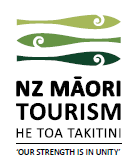Press release from Air New Zealand
Four of New Zealand’s key tourism leaders have jointly released a report to the Minister of Tourism proposing the establishment of a $130m annual fund to address the infrastructure challenges that tourism brings, particularly for regional communities.
The report released today is the result of work commissioned by the Chief Executives of Air New Zealand, Auckland Airport, Christchurch Airport and Tourism Holdings Limited. It is intended to be an input into the government policy process and to provoke a conversation between the tourism industry, local and central government on investment in public tourism infrastructure such as car parks, sanitation and visitor facilities.
Christopher Luxon, Air New Zealand CEO says, “This work is a great example of industry leaders working together to create a national and targeted tourism infrastructure funding mechanism to ensure the long term sustainable growth of tourism.”
Tourism is New Zealand’s largest industry, and growing fast. While growth presents huge opportunities for New Zealand communities the challenges that come with growth need to be well managed and the tourism industry is committed to being part of the solution.
Malcolm Johns, Christchurch International Airport CEO says, “As the tourism industry grows it’s important that local public infrastructure keeps pace but we also need to be realistic about the ability of some local communities to fund the ongoing investment required.
“Rapid tourism growth over recent years means there’s already a local tourism infrastructure deficit in parts of New Zealand, especially in regions with low numbers of rate paying residents and high visitor numbers.”
Adrian Littlewood, Auckland Airport CEO says, “While the industry is in good heart and adjusting to growth, it is the right time to be focused on not only recovering that deficit but positioning New Zealand to get ahead of the game and sustain the growth into the future.”
The report suggests that government and industry can work together nationally to create a fund to address the tourism infrastructure deficit. In particular the report highlights that the government benefits significantly from the tourism industry, not least from the estimated $2.8 billion in GST that tourists pay every year, and should invest alongside the tourism industry if the industry is prepared to contribute to a ring fenced and highly targeted fund to improve local tourism infrastructure.
The report proposes that a National Tourism Infrastructure Levy be created comprising of a 2% national bed levy across the accommodation sector and a $5 increase to the border levy which would raise $65 million per annum from the industry. Matching funds from the government would bring this to $130 million per annum to fund local tourism infrastructure needs. It also recommends that the fund have a formal review every five years to ensure the funds are being appropriately applied.
The proposal from the tourism industry leaders has been carefully designed to avoid the problems observed overseas, like with the Australian Passenger Movement Charge, where tourism taxes are used for general revenue purposes and disconnected from tourism.
The report also suggests ways that the funds could be allocated. Grant Webster, Tourism Holdings Ltd CEO says, “By working together, industry and government could establish an independent entity that would bring greater discipline and commercial rigor to investment decisions than any of us could achieve on our own.”


